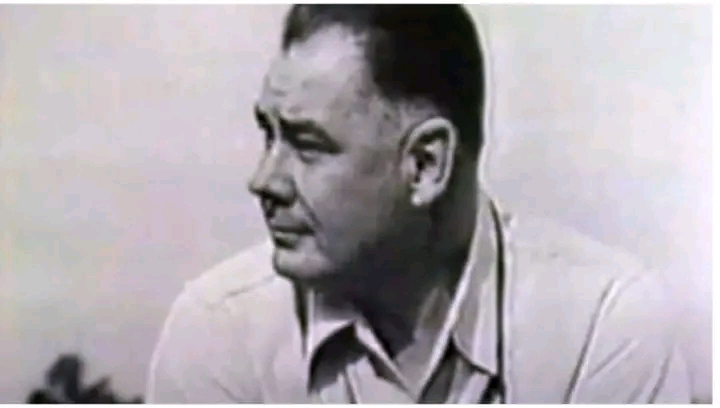Robert Neyland’s name is synonymous with greatness in college football, and yet, the full extent of his legacy—one woven with triumphs, controversies, and whispers of something more—remains shrouded in mystery. As the head coach of the University of Tennessee Volunteers from 1926 to 1952, Neyland’s accomplishments are legendary, but the path to his success is far from a story of simple dominance. It’s a tale of tension, pressure, and an unyielding desire to win at all costs.
Over the course of 21 years, Neyland engineered one of the most impressive coaching careers in history, capturing four national championships and creating a dynasty in Knoxville that would be remembered long after he departed. His record speaks for itself—eight Southeastern Conference titles, a staggering 173 wins, and only 31 losses. The numbers are cold, but they don’t fully capture the essence of his influence. What made Neyland not just a coach, but a looming figure in Tennessee lore, was his ability to instill fear and awe in both his players and opponents.
Yet, what gives his legacy an air of intrigue and anxiety is the eerie feeling that there was always something lurking beneath the surface. Neyland’s methods were as intense as they were calculated. Known for his stoic demeanor, he inspired loyalty in some but terror in others. Those who played for him often speak of the haunting silence on the practice field, where the threat of failure was always palpable. It wasn’t just the victory that he sought—it was control over every moment, every detail, down to the most minor flaw in a player’s execution.
But with greatness came internal struggles. There were rumors of psychological strain, not just from the pressure of maintaining a championship-caliber team, but from the inner turmoil of an era defined by racial tensions, economic hardship, and shifting societal values. Neyland’s relationship with some of his players, particularly from marginalized backgrounds, has often been questioned. Could his success have come at the expense of human dignity?
In a profession dominated by ever-changing tides, Neyland’s impact on Tennessee was unmistakable. Yet, his legacy is not one easily defined by the banners hung in Neyland Stadium or the victories recorded in history books. There’s a lingering, almost uncomfortable tension when discussing his name, an unanswered question hanging in the air: Did Robert Neyland truly embrace the game for what it could bring to his players, or did he, like many before and after him, simply become obsessed with the crushing weight of being remembered?
The truth might never be fully known—but it’s this uncertainty that keeps his legend alive, forever cloaked in both reverence and unease.
